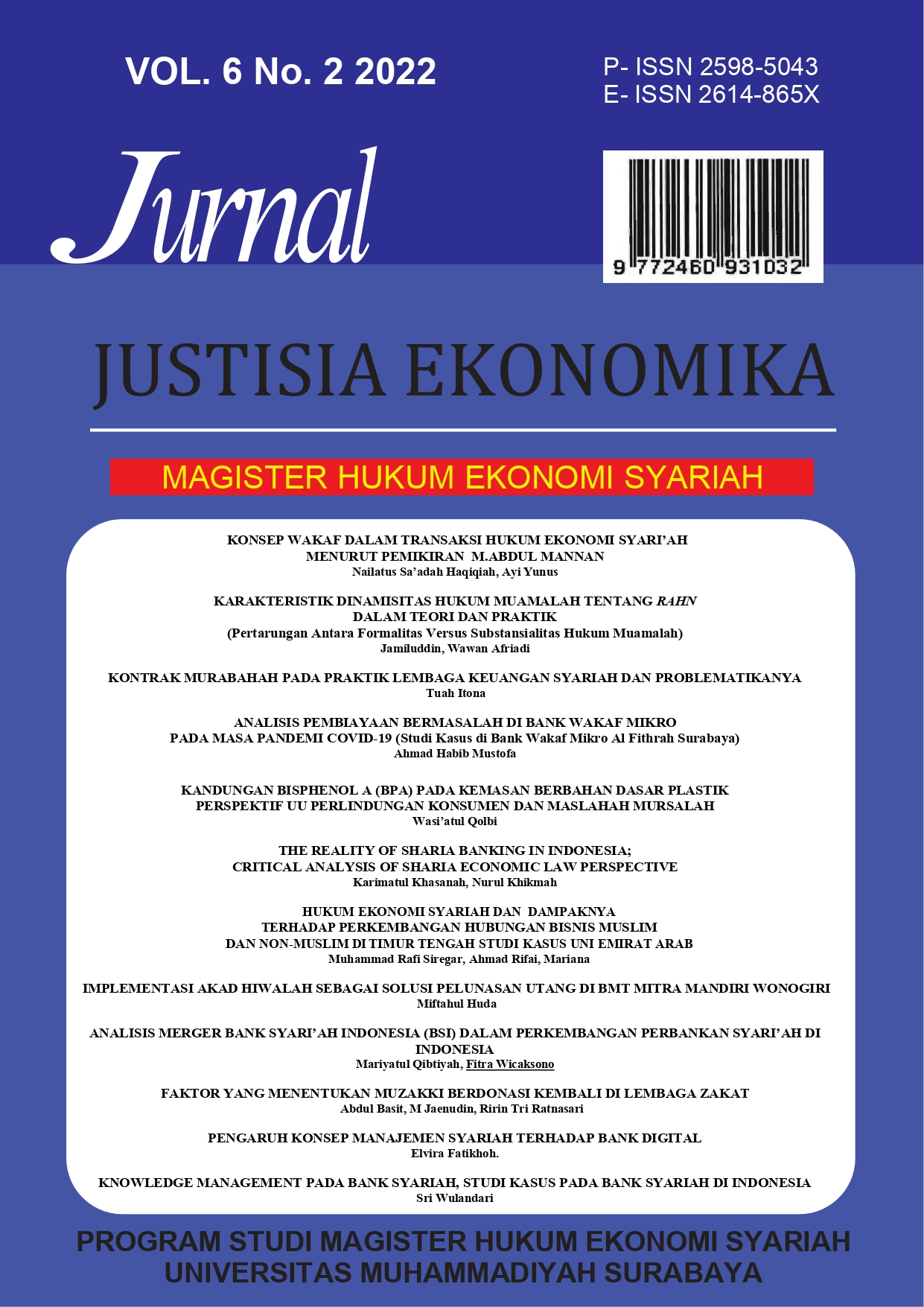PENGARUH KONSEP MANAJEMEN SYARIAH TERHADAP BANK DIGITAL
DOI:
https://doi.org/10.30651/justeko.v6i2.15694Abstract
The development of digital culture in organizations encourages the emergence of innovations to digitize business. Digital innovation will provide new experiences for customers. In Indonesia, many banks are developing digital banking services to develop their services through digital transformation, such as BCA with Blu, and BTPN with Jenius. The purpose is to increase the number of customers. The existence of digital banking from various conventional banks can make it easier for customers to open accounts, pay bills, shop, and also transfer to other banks or between banks. The increasing number of internet users can make it easier for digital banking to develop in this modern era. Supported by practical features that are easy for the public to understand, transact without having to leave the house. Digital banks allow customers to get banking services independently (self-service) without having to come directly to the bank. Digital banking is different from SMS banking, Mobile-banking, and E-banking, in that these services are banking services that can be accessed alone via smartphones with features ranging from payment transactions, transfers, and purchases, to cardless cash withdrawals at ATMs. A process of activities to achieve goals carried out by individuals who contribute their best efforts through predetermined actions can be called management. Sharia management is management to obtain optimal results that aim to seek the pleasure of Allah SWT. The purpose of this study is to determine the effect of the concept of Islamic management on digital banks, by asking whether this conventional mobile banking application follows Islamic law.
Downloads
Published
How to Cite
Issue
Section
License
HAK CIPTA
Penulis yang mengirimkan artikel dalam jurnal Justisia Ekonomika harus memahami dan menyetujui persyaratan tentang hak cipta jurnal Justisia Ekonomika sebagai berikut:
1. Hak Cipta tulisan / artikel yang diterbitkan di jurnal Justisia Ekonomika otomatis menjadi hak pengelola jurnal atau publisher
2. Meskipun Hak Cipta atas tulisan yang telah diterbitkan di jurnal Justisia Ekonomika adalah menjadi haknya publisher, tetapi penulis masih mempunyai hak untuk : a). Penulis boleh meng-upload di repository kampus, b). Penulis boleh meng-upload di webnya sendiri, c). Penulis boleh meng-upload di google schoolar, orchid dan sinta
LISENSI
Lisensi atas tulisan / artikel yang diterbitkan di jurnal Justisia Ekonomika adalah menggunakan Creative Commons dengan atribusi CC-BY-NC 4.0






















